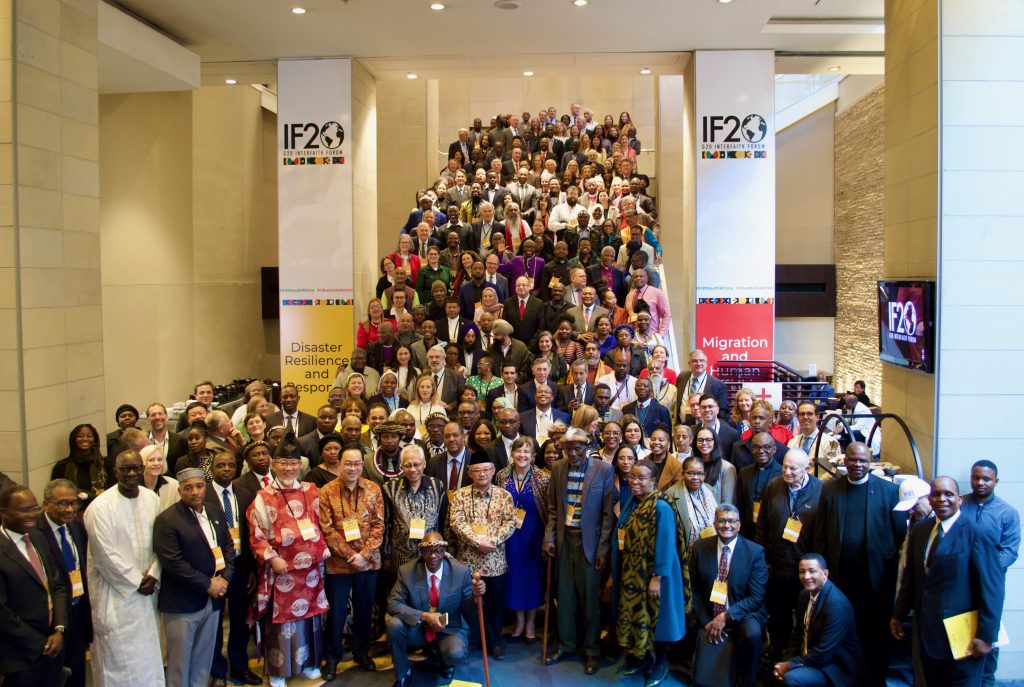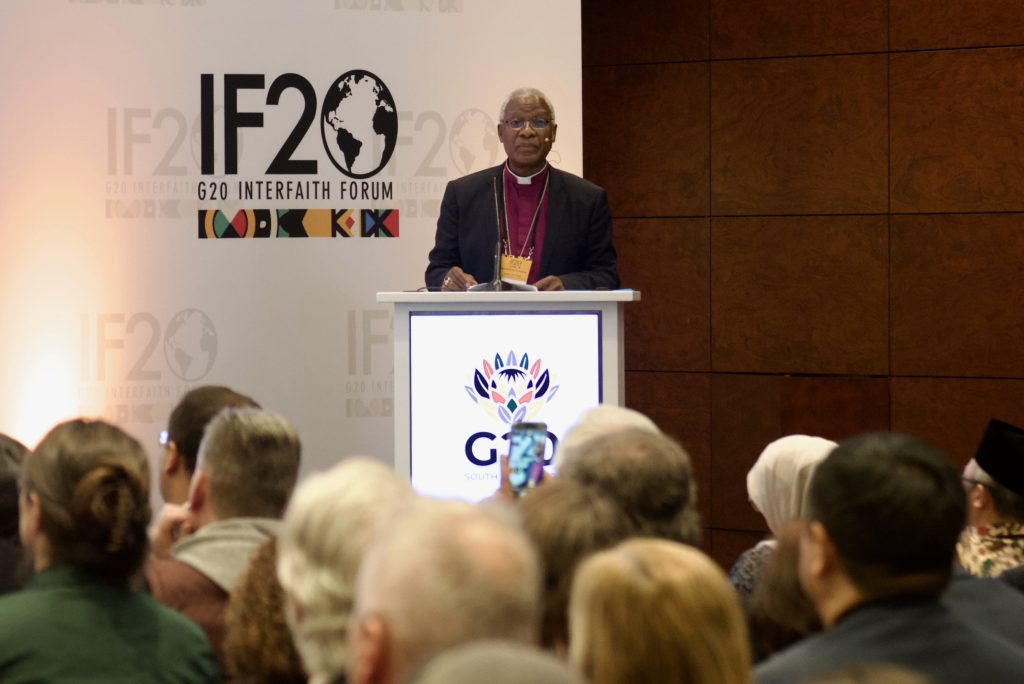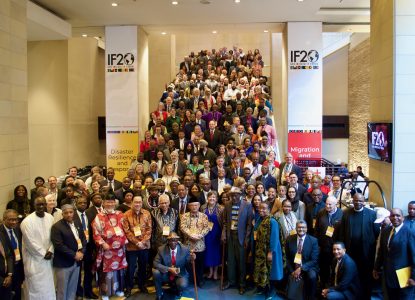By Luisa Banchoff
– – –

On Monday, more than 400 representatives of religious communities and faith-based organizations gathered in Cape Town for the start of this year’s G20 Interfaith Forum, “Ubuntu in Action: Focus on Vulnerable Communities.” Colorful placards and banners adorned the meeting rooms, emblazoned with the theme of South Africa’s G20 Presidency: solidarity, equality, and sustainability. As delegates arrived, they descended a flight of stairs decorated with key terms for the forum. Compassion, hope, community and, of course, the titular Ubuntu, a word invoked numerous times over the course of the day. Ubuntu, which means “I am because you are,” captures the collective and interconnected humanity at the heart of African philosophy.
In the morning’s keynote address, Dr. Thabo Makgoba, Archbishop of the Anglican Diocese of Cape Town, invoked Ubuntu in quoting the words of the G20 presidency: “In the spirit of Ubuntu, we recognize that individual nations cannot thrive in isolation.” Yet in a world facing grave economic crises, climate change, and political polarization, where the targets set by the Sustainable Development Goals slip further out of reach, Ubuntu is too often dismissed or discarded.
Speaking of the challenge of hunger in South Africa and around the globe, Archbishop Makgoba said:
“When children die of malnutrition while food rots in warehouses… our Ubuntu is broken.”
This sober assessment was the first of several reckonings the day had in store. In a session on food security and poverty, Amanda Khozi Mukwashi of the United Nations called on delegates to “look at ourselves in the mirror” and confront difficult questions. Why are people still hungry in our world of abundance? Why have faith communities not held each other accountable for tackling systemic poverty and injustice? During a panel discussion on finance and debt, Adeyinka Ojediran, an Elder in the Church of Jesus Christ of Latter-Day Saints, challenged faith leaders to acknowledge the times they have betrayed their moral authority by staying silent even as marginalized groups are excluded by governments and communities. Only by taking responsibility for our own shortcomings can we begin again to make a positive change.

Despite past inadequacies and failures, people of faith must remain dynamic and engaged in seeking equality and justice. In her remarks, Prof. Katherine Marshall, Vice President of the G20 Interfaith Forum Association, described the deep cultural and political divisions of our times, when foreign aid is being slashed and the basic values of compassion and empathy are being called into question. This is precisely the time for a “true Kairos moment,” when we might “bring prophetic voices to care about the most vulnerable.”
The path forward is long and demanding. In the words of Dr. Gordon Simango of the All Africa Conference of Churches, “Ubuntu must be our compass.”
Featured Quotes from Day One
On turning faith into action:
“Our faith demands of us that worship should drive us from our knees and send us out from our churches, mosques, and temples to engage the world and ensure that our creator’s intentions are fulfilled.” – Archbishop Thabo Makgoba
On passing the torch:
“We must teach young people that having different beliefs does not mean one must be feared, shunned, or silenced. We are told that the youth are the leaders of tomorrow – but if we truly want tomorrow to be better than today, we must equip the youth to lead in peace today.” – Michael-Daniel Bam
On embracing discomfort:
“When you leave this place at the end of our conference, make note of at least two or three things that made you feel really uncomfortable. Embrace them. Take the opportunity to speak to political leaders, to your community, to your own families about them, so that you can do something. Action begins with people, and people do something, change happens.” – Dr. Musimbi Kanyoro
– – –
Luisa Banchoff served as a research and report writer for the World Faiths Development Dialogue. She graduated summa cum laude from Princeton University with a B.A. in religion and earned a master’s degree in social anthropology from the London School of Economics.


